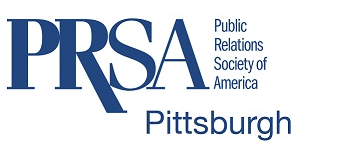Our Flaws Are Our Strengths
Originally Published on Public Relations Strategery| By: Steve Radick
I get distracted easily. I don’t call my mom nearly often enough. I’m sometimes, ok, oftentimes, arrogant. I have constant anxiety over the fact that I give presentations talking about how success isn’t measured using impressions and likes, yet I find myself building client reports that do exactly that. I’ve sent emails complaining about how bad my client is…to my client. I have no idea how to use power tools.
The list of my mistakes and flaws could go on and on. Just ask my wife. So could yours. So could everybody’s…if people were willing to talk about them.
But no one wants to talk about their flaws, mistakes, screw-ups and failures. They’re embarrassing. They’re uncomfortable. They’re awkward. They make us seem weak and inadequate.
That’s why we use technology to hide every flaw, cover up every defect, and filter every word. Every text, email, post, and Snap is concepted, staged, shot, and shared to emphasize our strengths and optimize our brands.
We can present the absolute best version of ourselves all the time. And that’s the problem.
Our flaws are our greatest strengths and we’re not only not using them, we’re actively hiding them.
Don’t believe me?
- Think about the waiter that tells you not to order the fish because it’s not fresh.
- The car salesman who tells you the car you’re considering has a lot of reliability issues.
- Or the politician who goes on Saturday Night Live and lets the cast poke fun at him.
Now think about your reaction to those situations.
- You don’t order the fish, but you do order the pasta the waiter recommended.
- You believe the salesman when she directs you to another car she says is much more reliable.
- You start to think that politician isn’t such a bad guy – you might even say you’d have a beer with him.
These reactions are driven by science. The Pratfall Effect states that people viewed as highly competent are deemed to be more likable following a blunder. And as Robert Cialdini explains in his book “Pre-Suasion: A Revolutionary Way to Influence and Persuade” – when you admit your flaws, people are more receptive to what you say or do next. And several recent studies have demonstrated that while we over-magnify our own flaws, we minimize flaws we see in others.
It’s why we still embrace celebrities like Charles Barkley or Britney Spears. It’s not despite their scandals and mistakes. It’s because of them. It’s why celebrities read mean tweets about themselves on Jimmy Kimmel. It’s why shows like Worst Cooks in America: Celebrity Edition and Dancing with the Stars exist. It’s why Dove’s Real Beauty campaign has won every award. It’s why Eminem won the final rap battle against Papa Doc.
Psychologically speaking, it’s our own insecurities that prevent us from using some of our greatest assets in building and maintaining relationships. We underestimate the power of authenticity, flaws and all. Our flawed reality, no matter how difficult it is to talk about, creates a stronger, more sustainable brand than a perfectly manicured one.
That’s why flaws are the basis for PRSA Pittsburgh’s annual PR Summit – “Failing Forward.” We’ve all bombed job interviews, flubbed presentations, sent emails to the wrong person, and shared unflattering pictures of ourselves. Instead of hiding from those things, let’s celebrate them. Let’s turn our flaws into our strengths.





Leave a Reply
Want to join the discussion?Feel free to contribute!